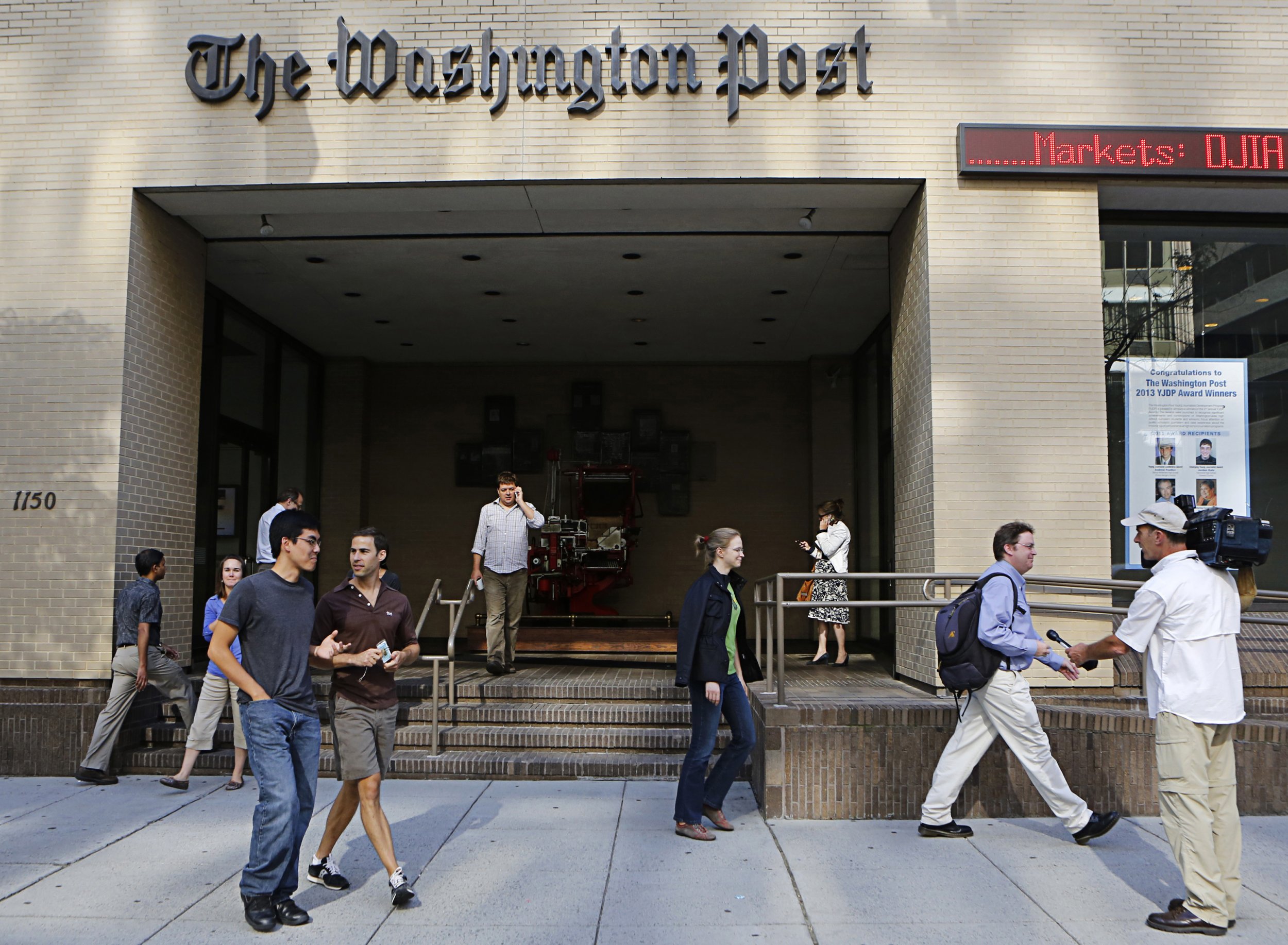
This article was first published on the Cato Institute site.
Donald Trump isn't happy with The Washington Post, which has steadfastly opposed his presidential campaign on its editorial pages and now has assigned a reporter team to write a book about him.
And he has repeatedly responded in Trump fashion: by threatening the business interests of the newspaper and its owner, Jeff Bezos.
Trump cited the Post by name in his February comments about how he wants to "open up" libel law so that "when The Washington Post…writes a hit piece, we can sue them and win money instead of having no chance of winning because they're totally protected."
And he said then of Amazon, of which Bezos is CEO, "If I become president, oh do they have problems. They're going to have such problems."
He has claimed for months that Bezos was using the newspaper as either a tax dodge for the Post or as a tool of influence to prevent Amazon from having to pay "fair taxes," a theory hard to square with the institutional arrangements involved. (Bezos owns the Post separately from his Amazon stake; the Post editors credibly deny that Bezos has interfered; and, as it happens, Amazon itself supports the idea of an internet sales tax.)
More recently, Trump has opened up a second front, arguing last week on The Sean Hannity Show that Bezos employs the paper "as a political instrument to try and stop antitrust" and implying that he, Trump, would hit Amazon with antitrust charges.
As you might expect, many critics are crying foul. "He's basically giving us a preview of how he will abuse his power as president.... He is clearly trying to intimidate Bezos and in turn The Washington Post from running negative stories about him," writes Boston Globe columnist Michael Cohen.
"Mr. Trump knows U.S. political culture well enough to know that gleefully, uninhibitedly threatening to use government's law-enforcement powers to attack news reporters and political opponents just isn't done. Maybe he thinks he can get away with it," writes Wall Street Journal columnist Holman Jenkins.
But as I wrote in this space four years ago, if you think blatant use of the machinery of government to punish newspaper owners or interfere in papers' management somehow happens only in other countries, think again:
[Since-convicted Illinois Governor Rod] Blagojevich, [Chief of Staff John] Harris and others are also alleged [in the federal indictment] to have withheld state assistance to the Tribune Company in connection with the sale of Wrigley Field. The statement says this was done to induce the firing of Chicago Tribune editorial board members who were critical of Blagojevich.
And in 1987, at the secret behest of the late Senator Edward Kennedy (D-Mass.), Senator Ernest Hollings (D-S.C.) inserted a legislative rider aimed at preventing Rupert Murdoch from simultaneously owning broadcast and newspaper properties in Boston and New York. The idea was to force him to sell the Boston Herald, the most persistent editorial voice criticizing Kennedy in his home state.
More recently, when the Tribune Co. encountered financial difficulties and explored the sale of several large papers, city councils in more than one city passed resolutions opposing the sale to politically "bad" prospective owners. Powerful congressional figure Henry Waxman (D-Calif.) could not resist the urge to meddle as well in management issues affecting his hometown paper, the Los Angeles Times.
This all goes back much farther, of course. Historian David Beito, writing about the FDR-Truman era, cites a long series of federal investigations of and retaliations against the distributors of pro-liberty books and pamphlets, including the proposal of Indiana Democratic Senator and New Dealer Sherman Minton (D-Ind.) to make it "a crime to publish anything as a fact anything known to be false," a downright Trumpian idea that Minton let drop after an outcry.
It is thoroughly appalling—but, alas, it is not new.
Walter Olson is a senior fellow at the Cato Institute's Center for Constitutional Studies.
Uncommon Knowledge
Newsweek is committed to challenging conventional wisdom and finding connections in the search for common ground.
Newsweek is committed to challenging conventional wisdom and finding connections in the search for common ground.
About the writer
To read how Newsweek uses AI as a newsroom tool, Click here.






